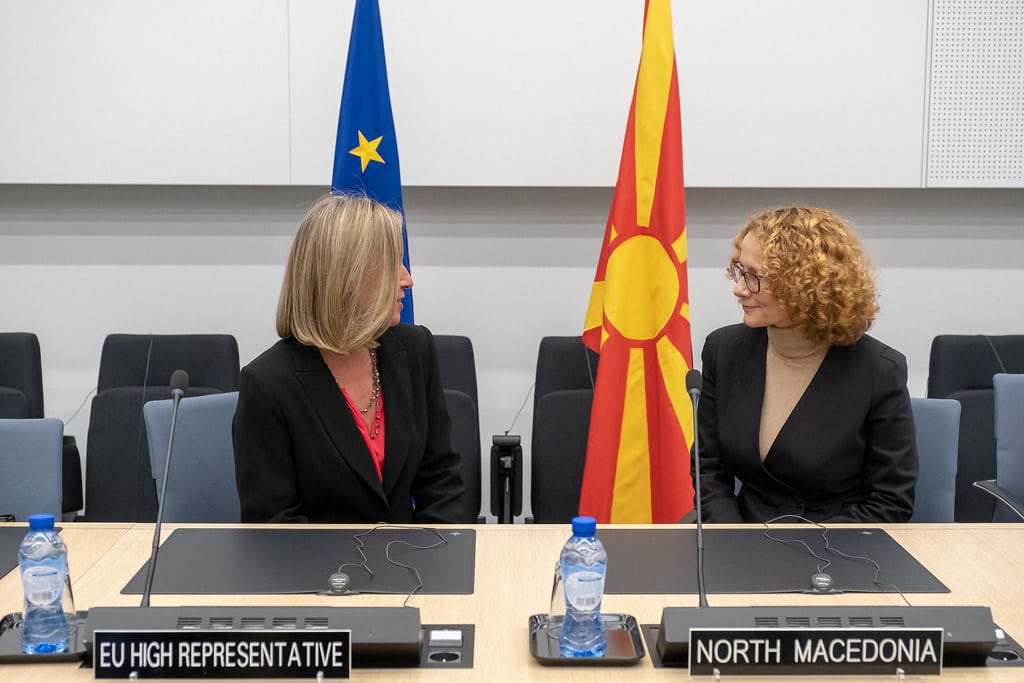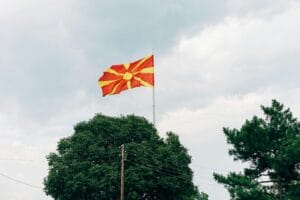Parallel tracks towards European Union (EU) accession were laid out for Albania and North Macedonia. Discussion within the EU has erupted on whether the countries should be “disjointed”, to speed up Albania’s process of becoming an EU member. Germany and Slovakia have been the most outspoken against the decoupling. Like North Macedonia itself, they urge to find a solution to the Bulgarian-North Macedonian language dispute. This caused a Bulgarian veto opposing the start of North Macedonia’s, and therefore also Albania’s, EU accession talks. The earlier released non-paper on the redrawing of Balkan borders should also be seen in the light of enlargement delays.
EU debate on disjointing Albania and North Macedonia after Bulgarian veto
The EU crisis of last week erupted after EU Enlargement Commissioner Olivér Várhelyi suggested to decouple Albania’s and North Macedonia’s EU accession processes, when the Bulgarian veto would not be lifted by June of this year. In a move that was welcomed by many, the EU decided to initiate the last round of accession talks with Albania and North Macedonia at its last June summit in 2020. Much of the positive sentiments quickly turned around in November of 2020. Out of the blue, Bulgaria decided to veto the proposed negotiation framework over their long-lasting language dispute with Bulgaria.
The dispute between the countries is mainly about the definition of the Macedonian language, which Bulgaria claims is a Bulgarian dialect. However, there are some other contested historical figures and issues surrounding the Macedonian national identity too. What is clear, is that the historical disputes are not likely to be resolved anytime soon. It was still unexpected though, that it would be used to oppose starting North Macedonian’s EU accession process, which was considered a nationalist election stunt. The Bulgarian government faced allegations of corruption, street demonstrations and an economic downturn. The elections saw Bulgaria’s parliament scattered and now, frustratingly, it seems unlikely to take back its veto.
EU member states appear divided on the issue of decoupling
One day after Várhelyi proposed the disjointing, opposition arose against the initiative. German European Minister Michael Roth and Slovak Foreign Minister Ivan Korczok spoke out against the plan and suggested that instead more effort needed to be put in resolving the Bulgarian-North Macedonian dispute. Roth stated that: “Both countries have delivered on required reforms and now the EU has to deliver too”. Naturally, North Macedonia itself also voiced its concern, fearing the attention would shift towards Albania’s EU accession process. This is something that has happened before, as Croatia and Albania were initially set to join the EU at the same time. Croatia managed to join in 2013, while Albania’s bid is still pending.
The European Commission (EC) was quick to make clear that they would continue to work towards a Bulgarian-North Macedonian solution. Moreover, they remarked that in recent years most of the member states opposed the disjointing of Albania and North Macedonia and there was no reason to believe this had changed. The issue was also raised in 2019, when France and the Netherlands vetoed starting negotiations with Albania, which meant the postponement of starting talks for North Macedonia too. Now it appears the other way around, with North Macedonia holding back Albania, which in turn supports disjointing.
Albania and North Macedonia likely to be stuck with each other
For the suggested disjointing to become a reality, the support of the EU 27 member states is needed. With the outspoken opposition against the suggestion of Germany and Slovakia, it appears as though Albania’s and North Macedonia’s fates remain intertwined. It is to hope for Albania and North Macedonia that the 26 other EU member states can convince Bulgaria to lift its veto. As the resolving of the since the 1880s ongoing historical debate between Bulgaria and North Macedonia might not be as straightforward to resolve, the EU might have to “bring its big guns” to persuade Bulgaria.
When North Macedonian Prime Minister Zoran Zaev met with senior EU officials on May 10, he hoped to make sure the splitting of the EU membership bids of Albania and North Macedonia became impossible. Deservedly so, he argued that no agreement could be made upon this issue without prior consultation with North Macedonia itself. Zaev stressed that “the Macedonian language and Macedonian identity are not negotiable” and urged not to resort to the proposed disjointing of the countries. In a meeting with EC President Ursula von der Leyen, she vowed to stand by North Macedonia in this difficult time.
Enlargement delays connected to release of the Balkan border EU non-paper
The hectic week for the EU was also still marked by the non-paper on the redrawing of Balkan border, something which can be linked to the ongoing delay of enlargement to Western Balkan countries, such as Albania and North Macedonia. The circulated document released shockwaves, as it suggested a redrawing of Balkan borders along ethnic divides. In the paper, Croatia, Serbia and Albania would swallow up parts of Bosnia-Herzegovina, Kosovo and North Macedonia. One of the aims would have been to speed up the EU integration of the Western Balkan region, with Croatia already being a member, and promising to accelerate the EU accession processes of Albania and Serbia.
Given the fact that North Macedonia’s borders would be redrawn in the plans laid out by the non-papers, it was strongly opposed by the country. North Macedonia’s President Stevo Pendarovsk argued that the redrawing of borders would result in a “bloodbath”. The EU itself has failed to comment more on the topic than that it was fully committed to the “sovereignty, unity and territorial integrity of Bosnia and Herzegovina”. The discussion on the decoupling of Albania and North Macedonia and the controversial release of the non-papers come in a time of the EU’s “renewed commitment to the Balkans”. It is to hope that the negative sentiment can be turned around during the upcoming EU summit in June.
Image: Flickr (EU High Representative Federica Mogherini and North Macedonian Minister of Defense Radmila Sekerinska Jankovska, 2019)
Sources: BalkanInsight1, BalkanInsight2, BalkanInsight3, Euronews1, Euronews2, Euronews3, Eurownews4, Ewb, Intellinews1, Intellinews2, Politico



